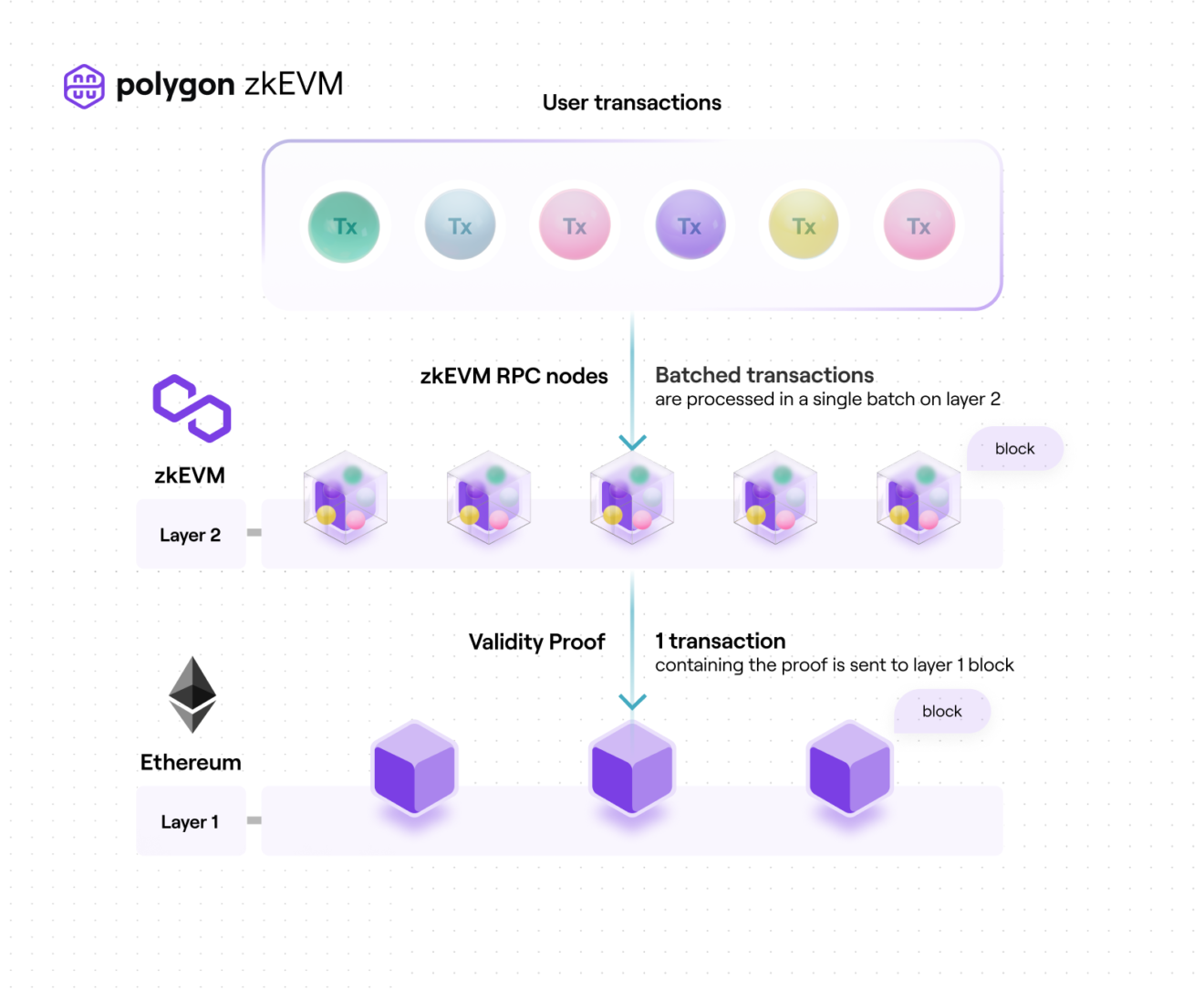To evaluate how well its zkEVM will function on the mainnet, Polygon does final testnet rollups with no prior information. Before fully integrating with the mainnet, Polygon, an Ethereum layer-2 scaling protocol, investigates the performance of zero-knowledge rollup (zk-Rollups) technology.
The Polygon Hermez group has been working on the Polygon zkEVM for over three years. With over 12,000 zk-Proofs generated in the first version of the zkEVM testnet, zk-Proofs are proven achievable on Ethereum.
David Schwartz, the project lead for Polygon zkEVM and PolygonID, provided an in-depth breakdown of the protocol’s implementation. The constant development and enhancement of layer-2 platforms have largely propelled Ethereum’s scalability.
The use of zero-knowledge rollups has accelerated the time it takes for layer-2 platforms to reach consensus and made possible the safe validation of transactions without compromising privacy. In a blockchain context, “finality” is when a batch of transactions has been entered into the ledger permanently and irrevocably.

Schwartz claims that the zkProver included with Polygon zkEVM is the first open-source EVM counterpart and achieves a success rate of over 99% when subjected to all Ethereum’s vector tests. The team’s most demanding and satisfying endeavour since beginning development of its native zkEVM was finishing validity proofs for traditional user transactions, he said.
Polygon’s team predicted two years ago that it would take up to 10 years to create zk-Rollups that were compatible with EVMs. With all of these advancements under their belts, the team sees zkEVM as the last frontier since it combines layer-2 scalability with a rapid conclusion. Increased throughput and decreased costs are only two of the many advantages for consumers.
According to Schwartz, the primary distinction between the projects is that zkEVM aims to scale the Ethereum ecosystem natively. In contrast, other zk-Rollups only scale transactions and enhance performance in a separate VM format.
Polygon claims their method is a type 2 zero-knowledge proof of stake, as defined by Ethereum co-founder Vitalik Buterin in August of 2022. Type 2 zkEVMs seek to remain backwards-compatible with existing applications while slightly adjusting to Ethereum to facilitate faster development and proof production. Meanwhile, StarkNet is positioned as a Type 4, delivering a new high-level language and requiring transpilers to convert solidity code into their language.
On the other hand, Schwartz was excited to have more benchmarks and source code from other projects. Transaction volume on Ethereum layer-2 solutions like Arbitrum and Optimism already surpassed that of the Ethereum mainnet in 2023, and this trend is expected to continue.
 coinculture.com
coinculture.com